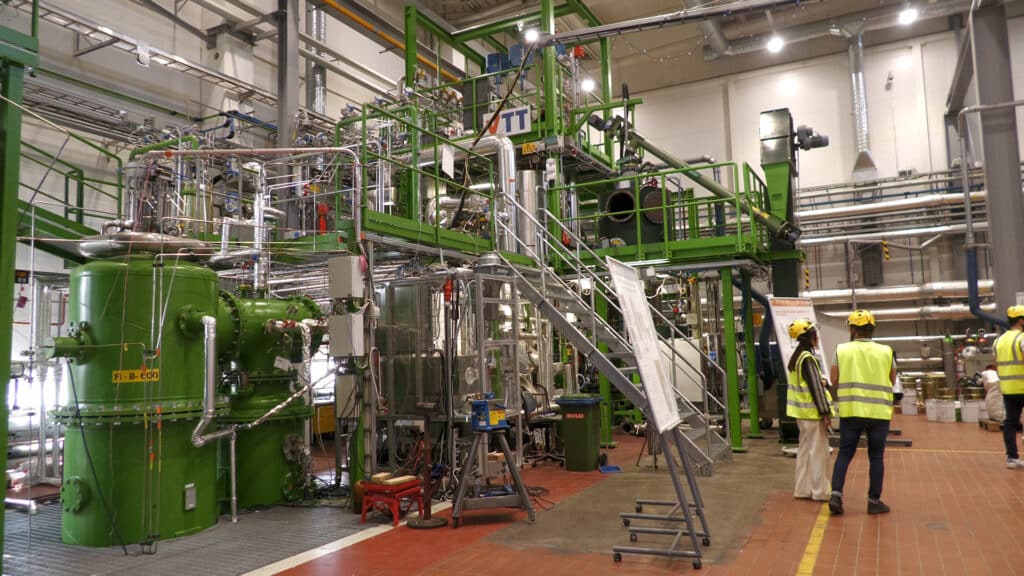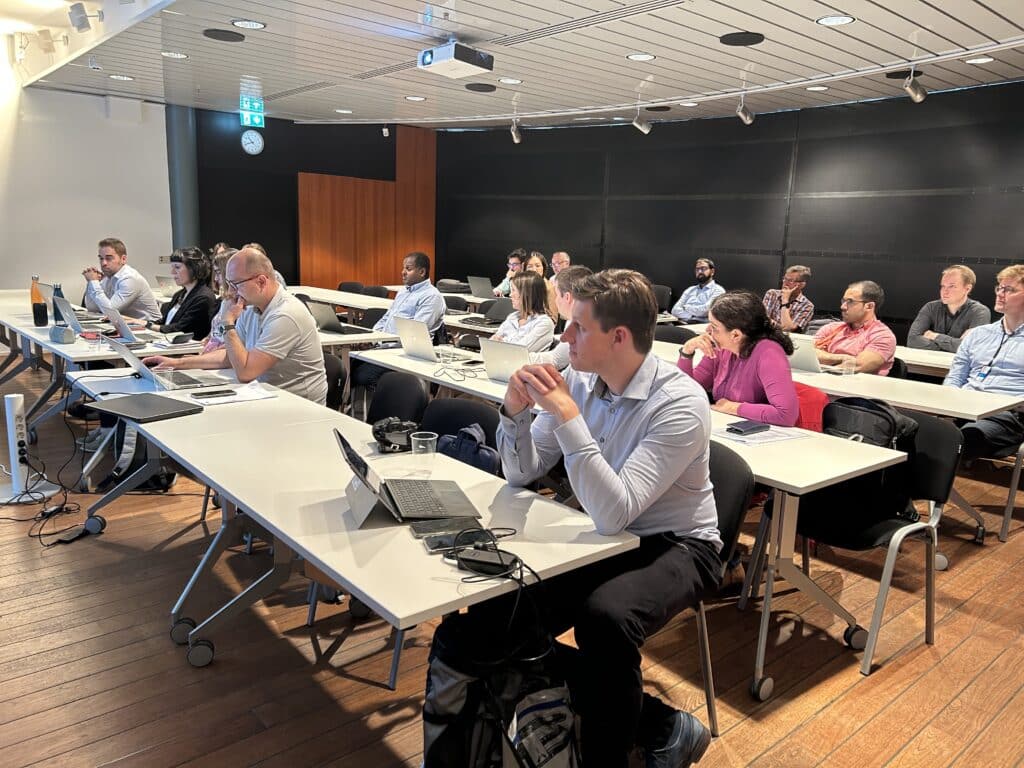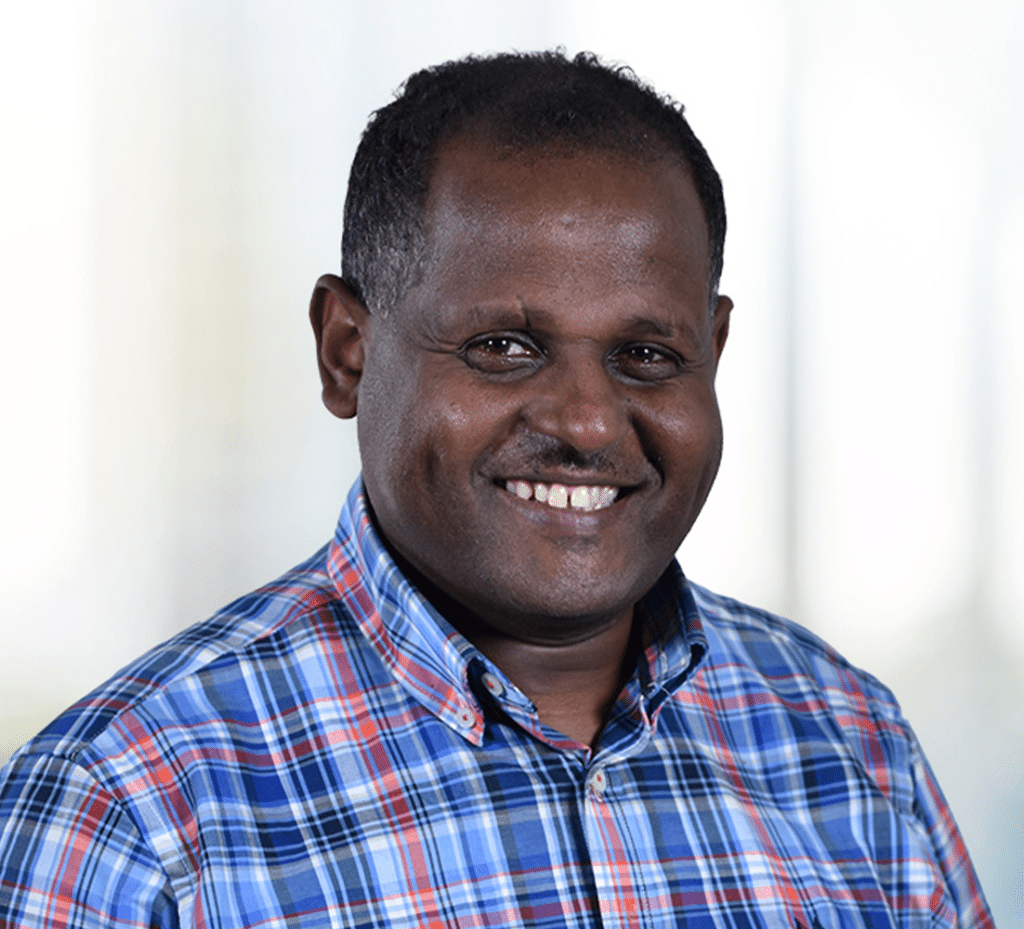There is an urgent need to develop new technologies to valorise unsorted plastic and other waste in large quantities to yield high-value material streams that can replace fossil ones. The Plastic2Olefins project will contribute to that by using a novel high-temperature pyrolysis process at an industrial scale.
Plastics2Olefins is an EU-funded project aiming to design, build, and run a demonstration plant to recycle unsorted plastic waste.
On June 13-15, one of the project partners, the Technical Research Centre of Finland, VTT, organised the second General Assembly meeting of the project.
Moving towards the pilot stage
During the meeting in Helsinki, the consortium visited the Bioruukki piloting facility, where VTT operates gasification and pyrolysis units, including the downstream gas processing systems.

The core task for VTT in the project is to purify the olefin-rich gas that originates from the pyrolysis of plastic waste. VTT’s target, in close collaboration with the Spanish energy and petrochemical company Repsol, is to meet the industrial standards to ensure the production of new virgin plastic from the resulting gas stream.
– We are moving towards the piloting stage in the Plastic2Olefins project, where we feed real gas into the gas processing system. We aim to purify the gas and have very clean ethylene gas coming from the system, says Research Scientist at VTT, Ville Nikkanen.
The assembly had an exciting meeting and good discussions about the project results from the last 12 months.
– We have been doing different trials to validate the chemical recycling technology based on pyrolysis at high temperatures with different plastic waste of different quality. We have tested the performance of different qualities of plastic waste at various operating conditions to validate and optimise the production of circular olefins, explains Rebeca Yuste from Repsol.

From waste to virgin quality
As difficult-to-recycle mixed waste fractions are used as feedstock in the Plastics2Olefins project, the produced gas contains multiple different impurities that are absent in the current plastic production systems that rely on fossil-based feedstocks.
The new impurities originating from waste processing must be removed, and novel methods for cleaning the streams must be created to enable the full circularity of plastic waste.
One year into the project, the test results regarding many of these new impurities have been promising. VTT has been able to remove most of them, and one of the objectives is to deliver completely purified gas as the Plastics2Olefins project will demonstrate the value chain from waste plastics to virgin quality plastics.
By doing so, the Plastics2Olefins partners have obtained to demonstrate the circularity of difficult-to-recycle wastes.
– We have good ideas on how to proceed with the project. The ongoing work will continue, and new solutions will be tested. I am quite confident that we will find a good solution to the challenges, says Ville Nikkanen.
- Read more: EU spends millions of euros on reducing plastic waste – Smart Innovation Norway is partner
Passing in knowledge
Smart Innovation Norway is among 13 project partners responsible for validation and exploitation activities, including cost-benefit analysis and scalability, feasibility study on replication potential, communication, dissemination, stakeholder engagement, and coordinating the learning and training modules.

Section Head of Energy Systems at Smart Innovation Norway, Dr Alemu Moges Belay, is thrilled to participate in such an essential project.
He and his colleagues bring competence and knowledge from former EU projects to the Plastics2Olefins project.
– RESOLVD and INVADE are relevant to the Plastics2Olefins project because they used the European Commission Joint Research Centre proposed methodology to perform a cost-benefit analysis aiming to improve distribution networks’ efficiency and hosting capacity, says Belay.
– The methodology is suitable for innovation action projects and can be used in the Plastic2Olefins project, he continues.
Developing a necessary methodology
A chemical recycling route is seen as a necessary tool in achieving the recycling targets set by the EU. To support VTT’s efforts to enable societies to achieve these ambitious recycling and sustainability targets, exploitation activities and communication and dissemination activities will be crucial.
The project estimates to reduce the lifecycle greenhouse gas (GHG) emissions by 70-80% compared to incineration and existing plastics recycling processes. This is providing an important contribution to the EU reaching climate neutrality by 2050 and setting a pathway for the commercialisation of renewable plastic feedstock replacing fossil fuels.
The project partners are excited to contribute to the development work of sustainable technologies in the Plastics2Olefins project.
FACTS ABOUT Plastics2Olefins
Duration:
60 months (2022-2027)
Abstract:
Globally 359 million metric tons of plastic were produced in 2018, and Europe produced 17% of this amount. In the same year, 29,1mio tons of plastic waste was generated in the EU, and only a third was recycled.
While sorted and pure plastic waste can be recycled relatively well, a major problem is the recycling of unsorted plastic waste. Such waste still holds a large share of valuable carbon feedstock but is currently either landfilled or energetically valorised, i.e., incinerated, both producing greenhouse gas (GHG) emissions instead of recovering the precious carbon feedstock contained.
Hence, there is an urgent need to develop new technologies that can not only valorise unsorted plastic but also other waste in large amounts to yield material streams that can replace fossil material streams.
One promising technology to recycle unsorted heterogeneous plastic waste is pyrolysis.
Objective:
The Plastics2Olefins project will design, build, and run a demonstration plant for recycling unsorted plastic waste.
The process will be digitalised and run on 100% renewable (electric) energy.
The project estimates to reduce the lifecycle greenhouse gas (GHG) emissions by 70-80% compared to incineration and existing plastics recycling processes.
This will be providing an important contribution to the EU reaching climate neutrality by 2050 and set a pathway for the commercialisation of renewable plastic feedstock replacing fossil fuels.
Participating organisations:
– Repsol SA, Spain
– Repsol Química SA, Spain
– E.T.I.A. – Evaluation Technologique Ingenieurie et Applications SA, France
– Tecnicas Reunidas SA, Spain
– Centro de Investigaciones Energeticas, Medioambientales y Tecnologicas-Ciemat, Spain
– ACTECO, Spain
– PREZERO, Spain
– ARTTIC Innovation GmbH, Germany
– Lafargeholcim España SAU, Spain
– Teknologian Tutkimuskeskus VTT OY, Finland
– Danmarks Tekniske Universitet, Denmark
– Smart Innovation Norway AS, Norway
– SCG Chemicals Company Limited, Thailand
– Universidad de Castilla – La Mancha, Spain
